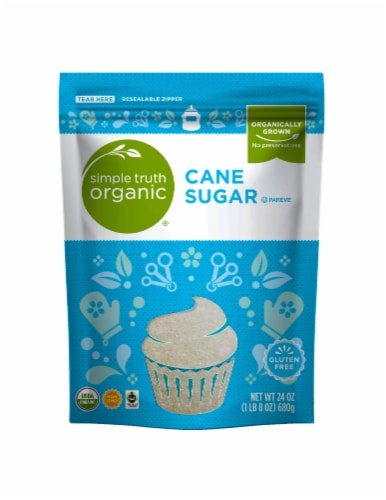Cane Sugar Processing: Standard Methods and Modern Innovations
Cane Sugar Processing: Standard Methods and Modern Innovations
Blog Article
A Comprehensive Summary of the Health and Economic Effects of Walking Stick Sugar Handling on Regional Neighborhoods
Cane sugar processing plays a critical duty in shaping the financial landscape of neighborhood areas, using work possibilities and boosting ancillary markets. The health implications linked with high sugar intake can not be forgotten, as they contribute to increasing rates of obesity and diabetes mellitus.
Financial Benefits of Walking Cane Sugar Handling
Walking stick sugar processing uses significant economic advantages that prolong beyond the prompt agricultural sector. The farming and processing of sugarcane develop many task possibilities, from farming to production and circulation. This employment generation not just sustains neighborhood economic climates yet additionally promotes neighborhood advancement by providing stable earnings resources for families.
Moreover, the sugar market stimulates ancillary organizations, including transport, tools supply, and packaging solutions (Cane Sugar Processing). As these markets grow, they add to a much more robust economic framework, boosting overall area strength. The export possibility of processed walking cane sugar additionally enhances economic benefits, positioning regions as competitive gamers in worldwide markets
Financial investment in modern handling facilities can cause raised efficiency and effectiveness, consequently decreasing waste and optimizing resource usage. This shift not only benefits the neighborhood economic situation yet additionally sustains sustainability efforts by lessening environmental influences.
Furthermore, the revenue created from walking stick sugar handling can be reinvested in neighborhood infrastructure, education, and medical care, promoting holistic community growth. Generally, the financial benefits of walking cane sugar handling are complex, giving a structure for enduring success in farming areas.
Wellness Risks Connected With Sugar Consumption
Excessive sugar intake postures considerable health dangers that warrant significant interest. High consumption of sugarcoated, specifically from processed drinks and foods, has actually been connected to various wellness issues. Among the most pressing problems is weight problems, as sweet diet regimens add to a raised calorie consumption without providing vital nutrients. This extra can bring about metabolic problems, including type 2 diabetic issues, which has actually ended up being progressively widespread in both adults and kids - Cane Sugar Processing.
Furthermore, high sugar usage is connected with heart disease. Elevated blood sugar levels can result in insulin resistance, a forerunner to various heart-related problems. Furthermore, sugar can have harmful impacts on dental health and wellness, resulting in tooth cavities and gum illness, as microorganisms in the mouth thrive on sugar, creating acids that wear down tooth enamel.
Furthermore, emerging research recommends a possible link in between high sugar consumption and mental health and wellness conditions, such as depression and stress and anxiety. As areas grapple with these health and wellness threats, it comes to be vital to advertise recognition and urge much healthier nutritional options. Dealing with sugar consumption is important not only for private health yet additionally for the overall well-being of neighborhood areas, highlighting the requirement for thorough public wellness methods.
Ecological Influences of Sugar Production
Frequently overlooked in conversations concerning sugar's effects is the significant environmental impact of sugar manufacturing. The growing of sugarcane often necessitates considerable land use, bring about deforestation, loss of biodiversity, and disturbance of neighborhood ecological communities. The conversion of forests and wetlands right into sugar vineyards can result in environment destruction, threatening many types and modifying ecological equilibrium.
In addition, sugar production is resource-intensive, consuming substantial quantities of water for watering. This can lead to deficiency of local water resources, adversely affecting both farming techniques and area accessibility to clean water. In addition, making use of chemical plant foods and pesticides in sugarcane farming can add to dirt degradation and water pollution, as runoff from these chemicals gets in neighboring rivers and lakes, affecting aquatic life and human health.
The environmental footprint encompasses the processing phase, where energy consumption and waste generation more worsen ecological issues. Air contamination from burning sugarcane fields, in addition to greenhouse gas emissions, add to environment modification. Because of this, the environmental effects of sugar manufacturing warrant serious consideration, advising stakeholders to take on more lasting practices to alleviate these unfavorable results on neighborhood environments and areas.
Job Development and Area Growth
The ecological difficulties posed by sugar production are commonly counterbalanced by its capacity for financial benefits, particularly in job production and area growth. The cane sugar sector acts as a considerable source of employment in several rural areas, supplying jobs throughout different skill degrees, from agricultural labor to processing and circulation duties. This work not just sustains specific households but also adds to the total financial vitality of local areas.
In addition, the establishment of sugar handling facilities promotes ancillary organizations, such as transportation solutions, devices why not try here supply, and maintenance companies. As these services grow, they create extra tasks and boost regional economies. The revenue produced from the sugar market likewise leads to boosted tax obligation earnings, which can be reinvested into social work such as education, infrastructure, and health care advancement.
Additionally, the sugar sector commonly takes part in area advancement campaigns, such as supporting neighborhood schools and health and wellness programs, thus boosting the top quality of life for homeowners. By promoting strong community ties and advertising financial growth, the walking stick sugar processing market plays an essential function in uplifting local populations, making it an important part of sustainable growth approaches in sugar-producing areas.
Balancing Health and Economic Development
In navigating the complexities of walking stick sugar handling, an important difficulty exists in stabilizing health and wellness factors to consider with economic growth. The sugar market significantly adds to local economic situations by generating jobs, stimulating associated industries, and increasing tax obligation revenues. Nonetheless, the health ramifications related to too much sugar usage can bring about persistent conditions such as excessive weight, diabetes, and cardio issues, which can burden public health systems and diminish workforce performance.

Furthermore, regulative frameworks can play a critical role in assisting sector practices in the direction of more health-conscious and sustainable approaches. By fostering collaboration in between federal government bodies, wellness companies, and the sugar market, areas can navigate the duality of wellness and financial development, ensuring that the benefits of walking stick sugar processing are equitably shared while prioritizing public health.
Verdict
Finally, the processing of walking cane sugar offers both considerable financial advantages and noteworthy wellness risks for local neighborhoods. While you could look here it promotes job production and promotes regional advancement, the affiliated health problems, specifically relating to excessive weight and diabetes, demand a cautious harmonizing act. By advertising review accountable usage and investing in neighborhood education and sustainable practices, it is possible to make the most of financial benefits while minimizing damaging health and wellness impacts, thus making sure a healthier future for local populations.
Additionally, sugar can have destructive effects on dental health, resulting in cavities and periodontal disease, as microorganisms in the mouth flourish on sugar, creating acids that deteriorate tooth enamel.
Resolving sugar usage is crucial not only for private wellness but additionally for the overall health of regional areas, stressing the requirement for comprehensive public health and wellness methods.
Often ignored in discussions concerning sugar's implications is the considerable ecological impact of sugar production. The health ramifications connected with excessive sugar intake can lead to chronic illness such as excessive weight, diabetic issues, and cardiovascular concerns, which can worry public health and wellness systems and lessen labor force performance.

Report this page